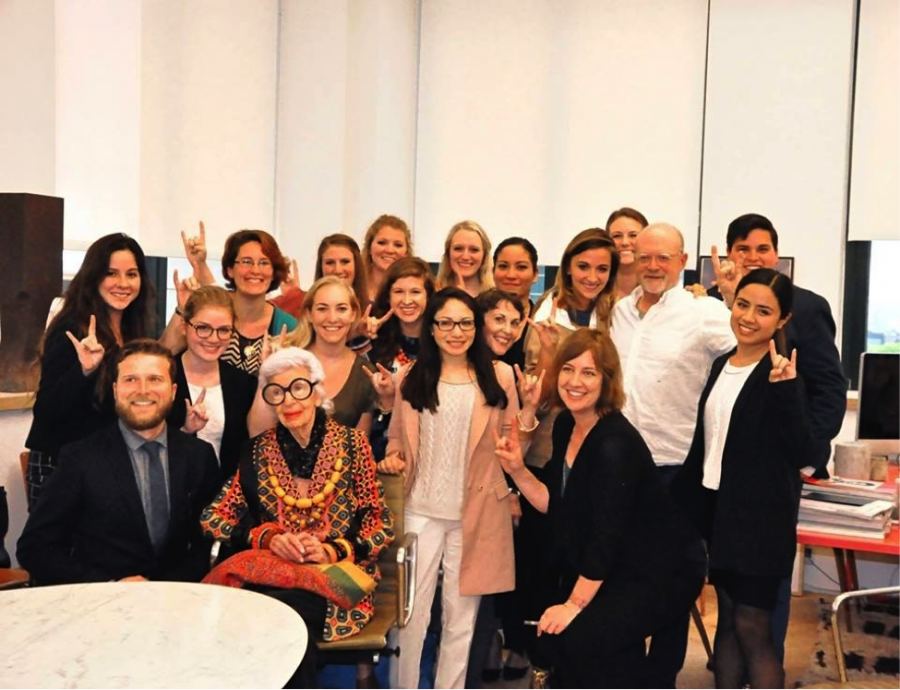The summer after my freshman year, I had the opportunity to take an internship position in Fendi North America’s flagship office in New York City, right above their 5th Avenue retail store.
When I first interviewed and toured the office, I had a magical feeling. Pictures of illustrious models were draped around the office. The furniture was chic and pristine. The office employees seemed bursting with happiness in every department as I toured and interviewed there. I happily accepted the offer to work there — even though it was unpaid — as I thought I would be able to see what made Fendi such a luxurious and highly regarded brand.
Though my time as an accounting intern at Fendi was interesting and enlightening, the biggest feeling I had working there was discovery. My experience working on the corporate accounting side was filled with interdepartmental projects and investigations into fashion industry-related issues that I didn’t even know existed. It was a huge learning opportunity and also an important realization of some of the truths and myths of working in the fashion industry.
When I started, I thought everyone would have to dress in couture because it’s a fashion company.
My first day in New York City, the day before I started work, I spent the whole day obsessing over my outfit. I am not someone who dresses with the style of a true fashionista — in other words, on most days you can find me in jean shorts and T-shirts, without makeup and with my hair in a messy bun. But I shopped for a cute outfit, bought new makeup and debated over which handbag to bring to impress my sure-to-be fashion-minded co-workers.
When I stepped into the office, though, I quickly realized that the cute outfits I saw on recruiting day weren’t the norm.
While some people were definitely stylish, the common attire of the office seemed to be capri gaucho pants, quirky T-shirts and other eccentric fashion statements.
After spending a few weeks in the office, I realized that the majority of my coworkers were not at Fendi because they themselves were fashionistas. Like me, they were there because they liked working for a big brand, and also because they didn’t want to leave New York City for familial reasons.
Once I discovered this similarity — that we all weren’t fashion-inclined by our nature — I gained more confidence proposing ideas and presenting work.
In my first few days, I also realized that departments with more artistic qualities took priority over the more quantitative business units, which surprised me.
The finance and accounting side of Fendi (located basement floor with no view of the city) was literally and figuratively below the advertising side (top floor, windows and decorations). Every project I worked on in accounting seemed to be a directive from advertising rather than finance.
For instance, one of my projects was to analyze advertising budgets required by Fendi’s leasing contracts. When I presented my findings to my boss, which advocated for a substantial cut to the budget, she thanked me for doing a good job on it but then hinted that advertising would not make the cuts.
The sentiment was if advertising felt like they needed the advertising, they would spend the money on it, regardless of financial justification. This is because the advertising department held more power and clout in the business than finance or supply chain. I learned that if I were to return to the fashion world, I would like to be in an area like advertising so that I could make significant impacts on the business.
While I never had to do things like get coffee for people, I was tasked with rectifying Fendi’s fraudulent credit card claims, which was a job involving emailing and calling credit card companies to get them to refund Fendi for certain return claims.
Even though this task was not glamorous, I actually didn’t mind it too much, as I learned about true business operations that made Fendi function at the lowest level. But in the grand scheme of things, it was not an important job, which taught me that as a fashion intern, I’d most likely be doing menial tasks.
At Fendi, like at any business, not all work is glamorous. For me, learning this lesson early on in my career has been instrumental. It gave me motivation to try harder when I returned to UT my sophomore year so I could ultimately be placed in a role that was a level higher than basic corporate functioning tasks. My Fendi internship humbled me, for which I am grateful. No work is “beneath me,” and this has given me a better attitude moving forward for other jobs. I am grateful to have had the opportunity to work at the firm.
Morisette is a business honors and marketing senior from Houston.





















